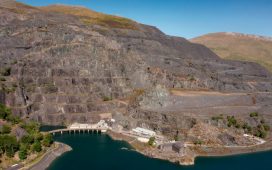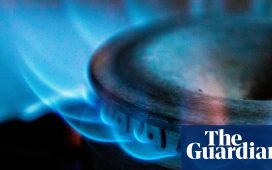Receive free UK energy updates
We’ll send you a myFT Daily Digest email rounding up the latest UK energy news every morning.
A £20bn plan to bring solar and wind power from the Sahara to Britain via the world’s longest sub-sea cable has been declared a project of “national significance” by Claire Coutinho, the new energy secretary.
The designation will streamline the planning process for the scheme, whose backers claim it could bring enough electricity from Morocco to supply more than 7mn homes, or 8 per cent of Britain’s power needs.
Sir Dave Lewis, former boss of Tesco and executive chair of the project, Xlinks, told the Financial Times the move was a “significant milestone” and said the Morocco energy scheme was “progressing well”.
Under the plan, electricity from the Guelmim Oued Noun region of southern Morocco would be supplied via cables running 3,800km under the sea to the tiny North Devon village of Alverdiscott, where it would be connected to the national grid.
Lewis said the project would have generation capacity of 10.5 gigawatts, of which 7GW would come from solar and 3.5GW from wind. “The sun shines every day there and the wind blows every evening,” he added.
Lewis said the costs for the entire project were now estimated at between £20bn and £22bn but insisted the British start-up could build the scheme with “no government subsidy or handout” and that the project would be transformational.
The Department for Energy Security and Net Zero said in a statement that Coutinho thought the project “could play an important role in enabling an energy system that meets the UK’s commitment to reduce carbon emissions and the government’s objectives to create a secure, reliable and affordable energy supply for consumers”.
Her designation of the scheme as one of “national significance” means a planning application for a converter station at Alverdiscott, which would be needed to transfer power into the grid, and other infrastructure work would go straight to the government, not Torridge District Council in Devon.
The department said the decision to designate the project as nationally significant would “provide the certainty of a single, unified consenting process and fixed timescales”.
The project’s viability depends on Xlinks negotiating a contract with the government to guarantee a fixed electricity price, known as a “contract for difference”.
Such contracts are widely used to support renewable energy projects in the UK, helping to get the offshore wind industry off the ground.
Xlinks said it is seeking a contract for 25 years guaranteeing a price of £56-£64 per MWh in 2012 prices. That is equivalent to about £77-£87 per MWh in today’s prices and is lower than the current wholesale price of about £96 per MWh.
However, prices in Britain may well fall as more renewable power comes online. Before the recent energy crisis, prices were about £50 per MWh.
Xlinks is seeking a higher guaranteed price than that awarded to onshore wind and solar in the UK government’s latest auction round for contracts, of £52 per MWh and £47 per MWh respectively, in 2012 prices. The contract length sought is also a decade longer than the typical 15 years.
Under the contracts for difference scheme, if the wholesale price falls below the price agreed between the developer and the government, the government pays the developer the difference, funded by a levy on consumer bills.
Even with the contract in place, enabling the project to secure financing, it would still face practical challenges ranging from the length and depths over which it needs to lay cable and transport electricity, and potential bureaucratic hurdles because of the number of jurisdictions it needs to cross.
“The distance is a challenge,” said Tom Edwards, senior modeller at Cornwall Insight, the consultancy. “You’ve got to go through Moroccan, Spanish, French waters.”
Lewis said a new generation of high voltage cables for the project would be built by a separate business, XLCC, with plans for a new factory at Hunterston in Ayrshire.












